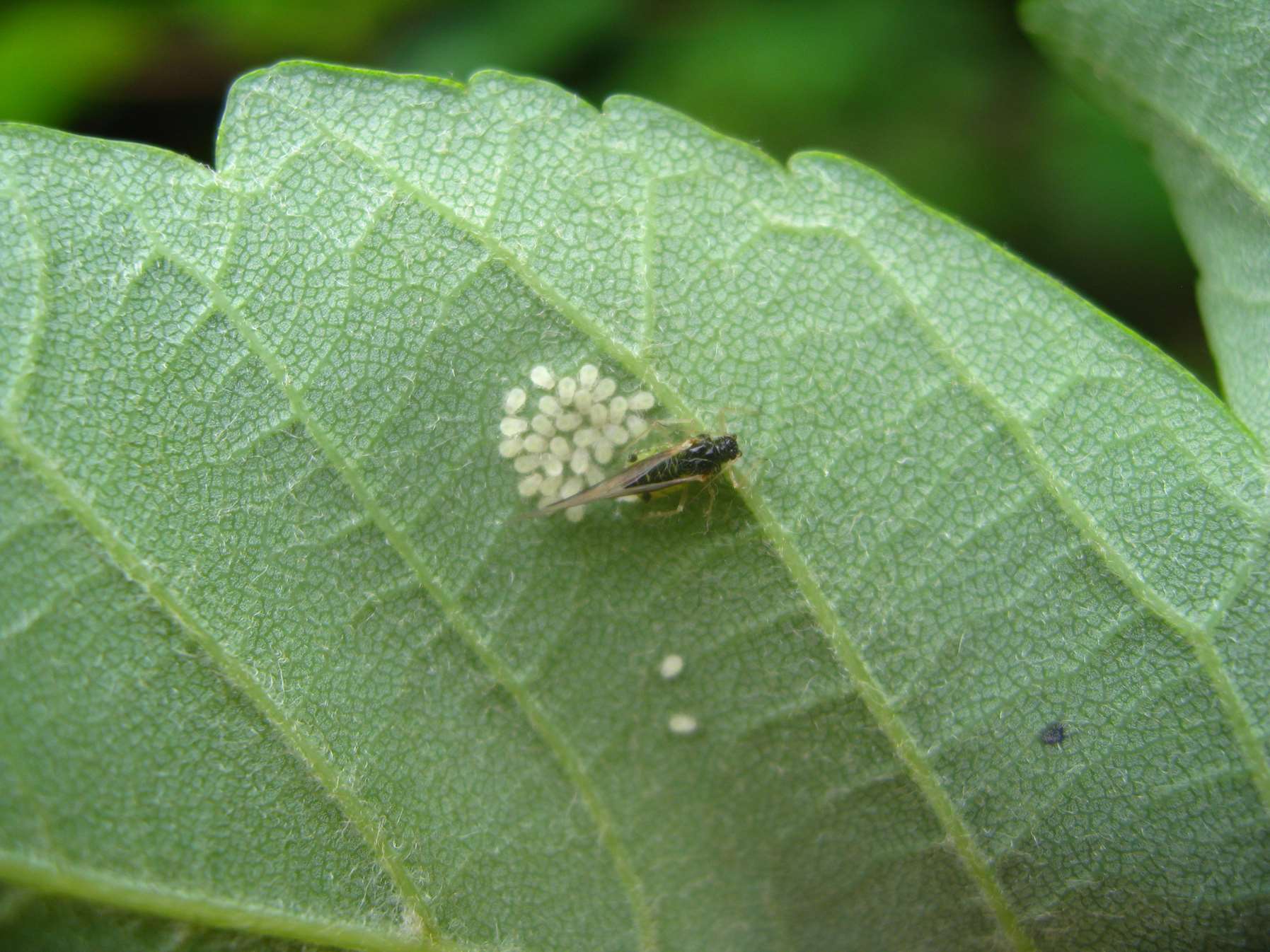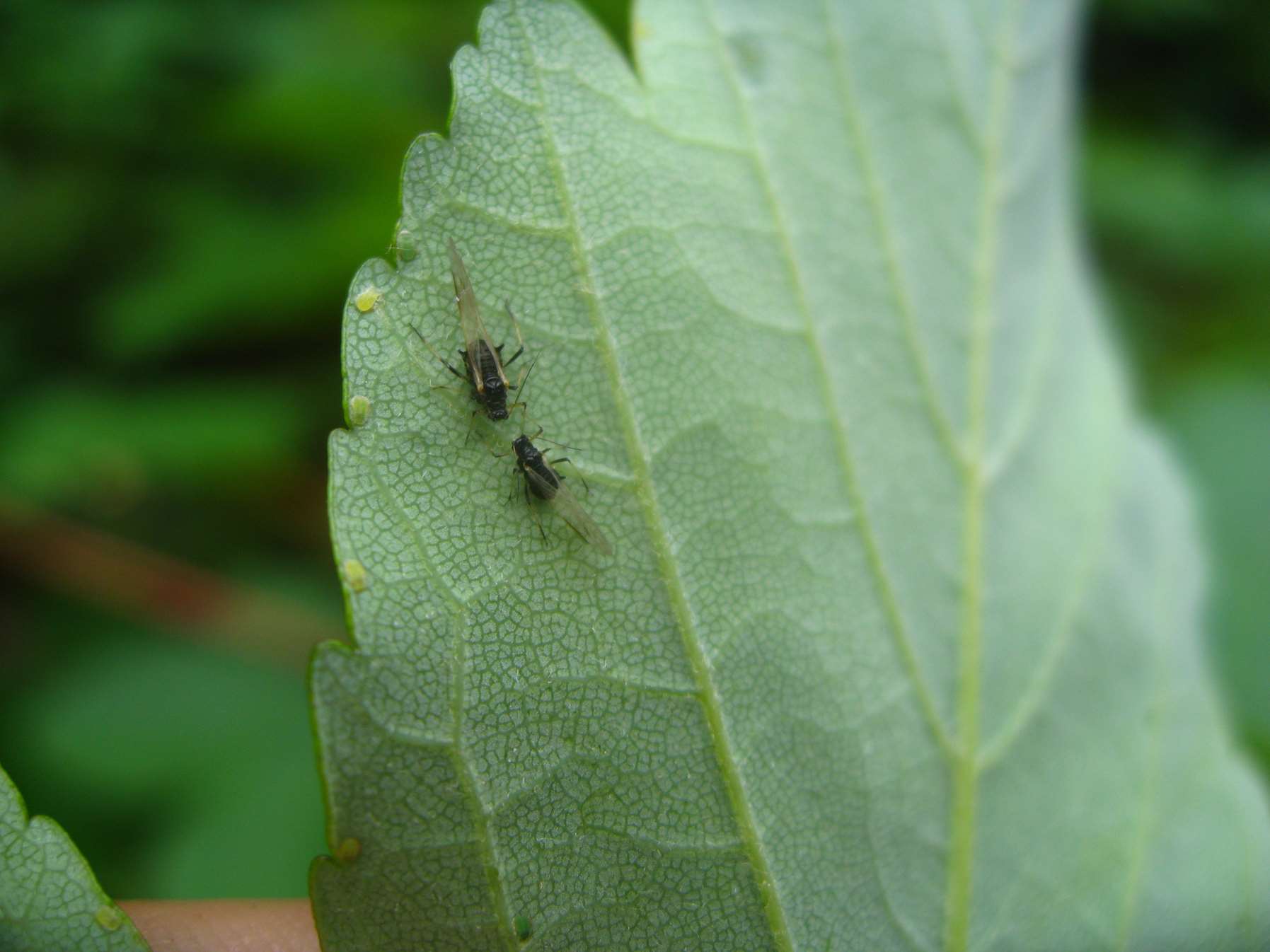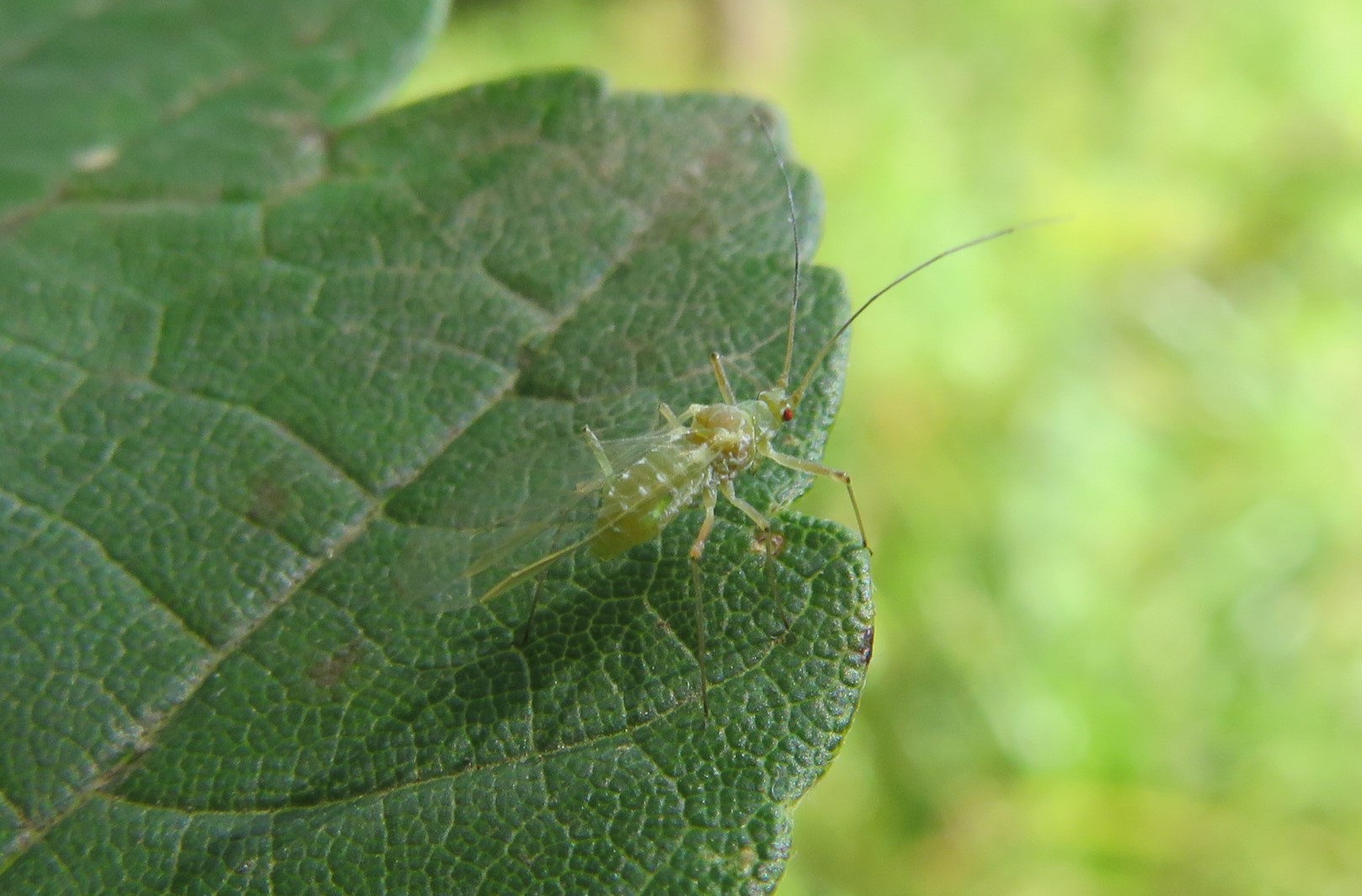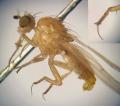Diptera.info :: Identification queries :: Other insects, spiders, etc.
|
Psylloidea ?
|
|
| Joerg Brucklacher |
Posted on 08-04-2021 11:17
|
|
Member Location: Southern Germany BW Posts: 60 Joined: 05.04.21 |
Hello, is this a species of Psylloidea inmidst its progeny ? Viviparia ? Or ist this a flying Aphidoidea ? Jörg 08.06.2020 Southern Germany, 450m Joerg Brucklacher attached the following image:  [219.06Kb] Edited by Joerg Brucklacher on 08-04-2021 11:20 |
|
|
|
| Joerg Brucklacher |
Posted on 08-04-2021 11:19
|
|
Member Location: Southern Germany BW Posts: 60 Joined: 05.04.21 |
and on the leaf beside : Psylloidea with the flat elder form of its larva ? Joerg Brucklacher attached the following image:  [122.58Kb] |
|
|
|
| Tony Irwin |
Posted on 08-04-2021 12:18
|
|
Member Location: Norwich, England Posts: 7328 Joined: 19.11.04 |
It's an aphid. What was the host plant?
Tony ---------- Tony Irwin |
|
|
|
| Joerg Brucklacher |
Posted on 08-04-2021 21:19
|
|
Member Location: Southern Germany BW Posts: 60 Joined: 05.04.21 |
What's the trick to tell apart Aphid and Psylloid ? Host plant was Acer psuedoplatanus. Besides the two aphids in the secon picture you can see five extremely flat larvae : but these are psylloidea ? Jörg |
|
|
|
| eklans |
Posted on 09-04-2021 08:02
|
|
Member Location: Franconia, Germany Posts: 4420 Joined: 11.11.18 |
Hi Joerg, the flat ones on the 2nd image could be psylloid larvae but it could be mites, too. For me it's not possible to see itn clearly enough. Greetings, Eric |
|
|
|
| Joerg Brucklacher |
Posted on 09-04-2021 14:07
|
|
Member Location: Southern Germany BW Posts: 60 Joined: 05.04.21 |
thanks |
|
|
|
| Tony Irwin |
Posted on 09-04-2021 15:55
|
|
Member Location: Norwich, England Posts: 7328 Joined: 19.11.04 |
Remember that psyllids are called jumping plant lice - so they are usually seen with their short and powerful hind legs tucked under their body, ready to jump. Aphids crawl (or fly), so they have easily visible long hind legs. Also aphids tend to fold their antennae back, but psyllid antennae stick forward.
Tony ---------- Tony Irwin |
|
|
|
| Tony Irwin |
Posted on 09-04-2021 16:08
|
|
Member Location: Norwich, England Posts: 7328 Joined: 19.11.04 |
I think these are Periphyllus species, The first picture is probably P. acericola, and the second picture P. testudinaceus. (Based on leg and body colour.)
Tony ---------- Tony Irwin |
|
|
|
| Joerg Brucklacher |
Posted on 10-04-2021 14:32
|
|
Member Location: Southern Germany BW Posts: 60 Joined: 05.04.21 |
Thank you - I see ... Greetings, Joerg |
|
|
|
| Joerg Brucklacher |
Posted on 10-04-2021 14:42
|
|
Member Location: Southern Germany BW Posts: 60 Joined: 05.04.21 |
another try - to see what I've learned : Psylloid running on Acer, spreading its antennae forward... But strong hind legs ?? - I don't Know. Maybe aphids spread their antennae forward too when running ... Joerg Joerg Brucklacher attached the following image:  [289.13Kb] |
|
|
|
| eklans |
Posted on 10-04-2021 15:39
|
|
Member Location: Franconia, Germany Posts: 4420 Joined: 11.11.18 |
Hi Jörg, hind legs are long and weak: a winged aphid. Could be Drepanosiphum platanoidis - the paler generation from late summer. Greetings, Eric |
|
|
|
| Joerg Brucklacher |
Posted on 10-04-2021 16:17
|
|
Member Location: Southern Germany BW Posts: 60 Joined: 05.04.21 |
okokok ...  |
|
|
|
| Jump to Forum: |












